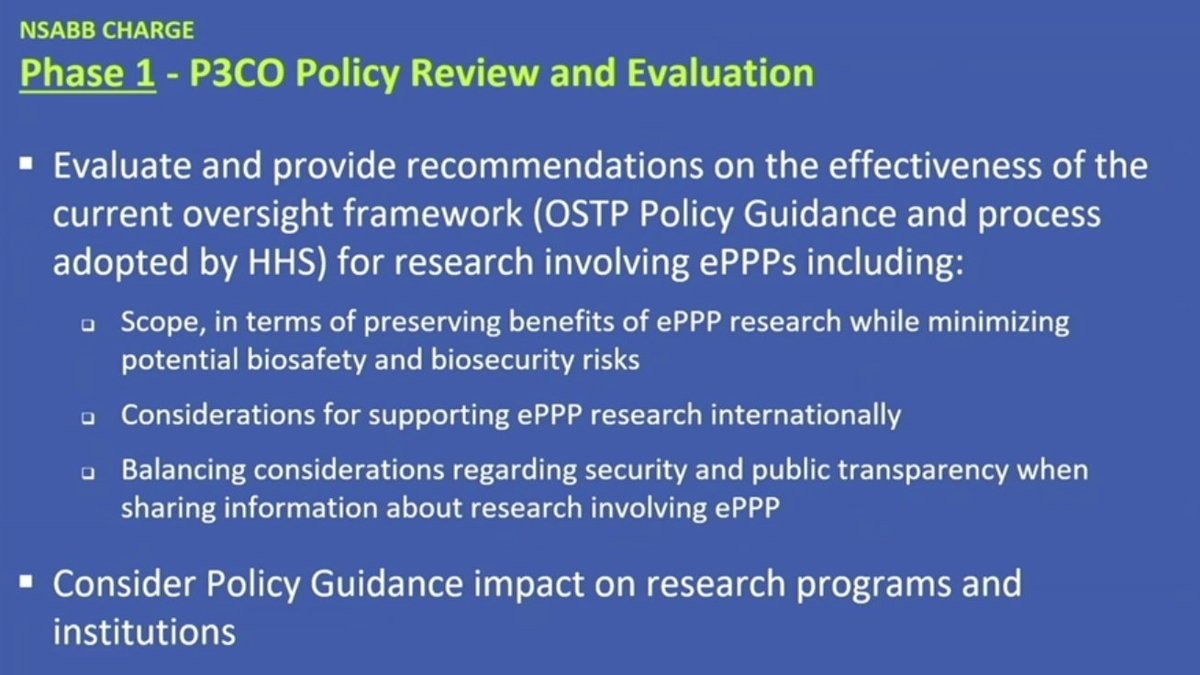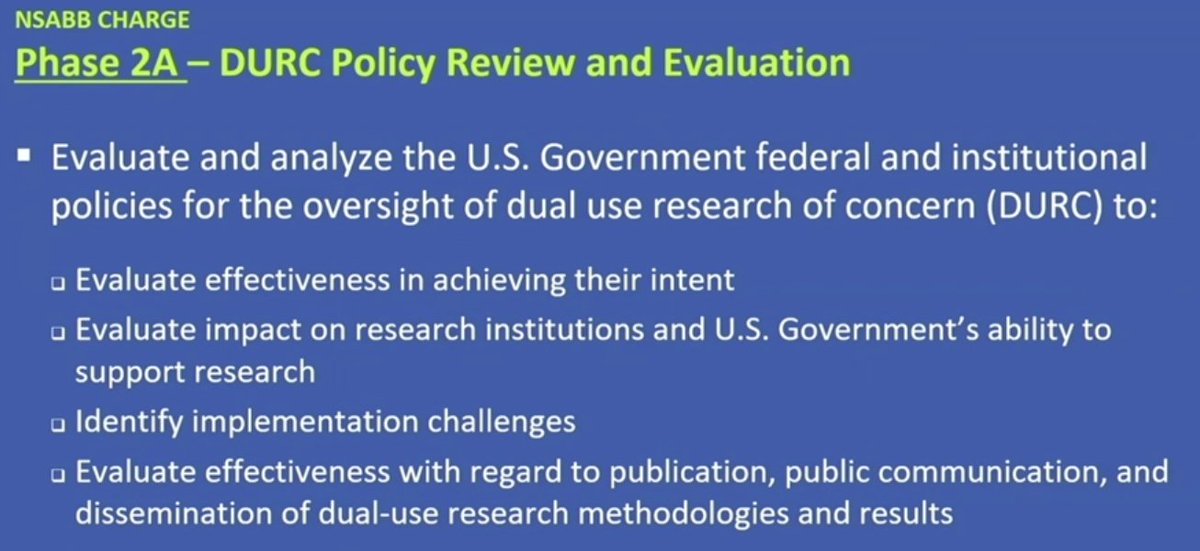
Video is up for a recent (Feb 28, 2022) National Science Advisory Board for Biosecurity (NSABB) public review of US government policies on dual use research of concern (DURC) and research with enhanced potential pandemic pathogens (ePPP/P3CO).
videocast.nih.gov/watch=44823



videocast.nih.gov/watch=44823




Having listened to this, I'm worried that some of the experts on the call are more concerned that the US might lose its competitive edge internationally than that some of this research might kill millions whether by accidental or deliberate release.
There's good acknowledgement of the difficulty of balancing security vs research advances, challenges of knowing what is happening in labs even in the US, & the value of engaging non-scientist stakeholders (I think this is very important; non-scientist views should have weight).
I still think the US & other scientific leaders can set a good model for the world by allowing some of this research to occur but on a remote island. Transparently and safely.
This means you don't lose a competitive edge & the work is also safer.
This means you don't lose a competitive edge & the work is also safer.
https://twitter.com/Ayjchan/status/1453717236343050241
The two choices should not be:
(1) Risk unleashing a pandemic by conducting risky experiments in/near densely populated urban centers
(2) Ban this research in the US and fear accelerating pandemic pathogen advances in hostile nations
(1) Risk unleashing a pandemic by conducting risky experiments in/near densely populated urban centers
(2) Ban this research in the US and fear accelerating pandemic pathogen advances in hostile nations
The NSABB review will cover issues that appear to have been raised by the lab #OriginOfCovid hypothesis - funding studies involving viruses found in nature, experiments using animal models of transmissibility and international #GainOfFunction studies.
science.org/content/articl…
science.org/content/articl…

• • •
Missing some Tweet in this thread? You can try to
force a refresh








